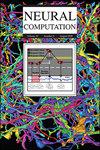带信念传播的有界理性决策网络。
IF 2.7
4区 计算机科学
Q3 COMPUTER SCIENCE, ARTIFICIAL INTELLIGENCE
引用次数: 0
摘要
能够执行各种任务的复杂信息处理系统(如人脑)是由相互协作和通信的专门单元组成的。这类信息处理网络的一个重要特性是局部性:没有一个控制模块的全局单元,而是在局部交换信息。在这里,我们考虑用决策理论的方法来研究由有界理性决策者组成的网络,这些决策者可以进行专业化分工并相互交流。以往的研究主要关注决策制定者之间的前馈通信,与此不同的是,我们考虑的是允许前后通信的循环信息处理路径。我们调整了信息传递算法以适应这一目的,从根本上允许单元之间的局部信息流,从而实现循环依赖结构。我们举例说明了在每个单元的信息处理能力有限的情况下,重复通信如何提高性能,以及连接和反馈回路过少或过多的决策系统如何实现次优效用。本文章由计算机程序翻译,如有差异,请以英文原文为准。
Bounded Rational Decision Networks With Belief Propagation
Complex information processing systems that are capable of a wide variety of tasks, such as the human brain, are composed of specialized units that collaborate and communicate with each other. An important property of such information processing networks is locality: there is no single global unit controlling the modules, but information is exchanged locally. Here, we consider a decision-theoretic approach to study networks of bounded rational decision makers that are allowed to specialize and communicate with each other. In contrast to previous work that has focused on feedforward communication between decision-making agents, we consider cyclical information processing paths allowing for back-and-forth communication. We adapt message-passing algorithms to suit this purpose, essentially allowing for local information flow between units and thus enabling circular dependency structures. We provide examples that show how repeated communication can increase performance given that each unit’s information processing capability is limited and that decision-making systems with too few or too many connections and feedback loops achieve suboptimal utility.
求助全文
通过发布文献求助,成功后即可免费获取论文全文。
去求助
来源期刊

Neural Computation
工程技术-计算机:人工智能
CiteScore
6.30
自引率
3.40%
发文量
83
审稿时长
3.0 months
期刊介绍:
Neural Computation is uniquely positioned at the crossroads between neuroscience and TMCS and welcomes the submission of original papers from all areas of TMCS, including: Advanced experimental design; Analysis of chemical sensor data; Connectomic reconstructions; Analysis of multielectrode and optical recordings; Genetic data for cell identity; Analysis of behavioral data; Multiscale models; Analysis of molecular mechanisms; Neuroinformatics; Analysis of brain imaging data; Neuromorphic engineering; Principles of neural coding, computation, circuit dynamics, and plasticity; Theories of brain function.
 求助内容:
求助内容: 应助结果提醒方式:
应助结果提醒方式:


